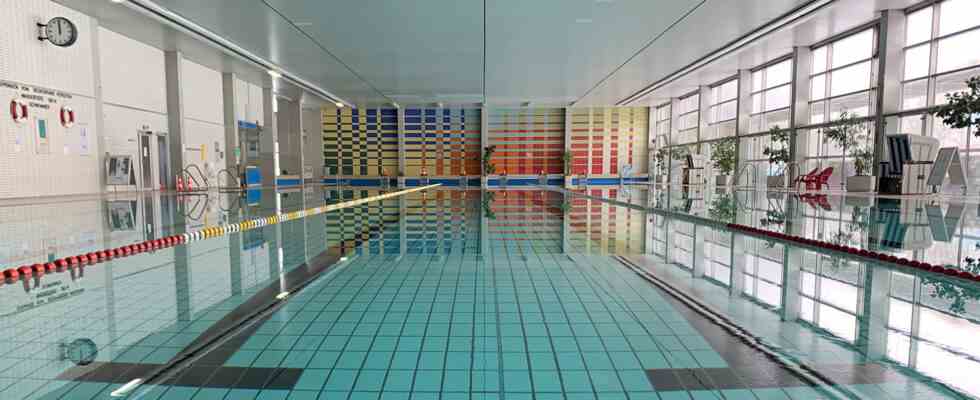Status: 13.12.2022 10:36 a.m
According to a survey, in view of the energy crisis, every third German city or municipality wants to limit the operation of swimming pools. Two out of five want to reduce street lighting.
According to a survey, numerous municipalities in Germany are planning measures to save energy – such as restrictions on the operation of swimming pools or a reduction in street lighting. More than half (54 percent) of the cities and municipalities surveyed by the consulting firm Ernst & Young (EY) want to cut services. In the previous year, the proportion was still 26 percent.
This is how municipalities save energy
According to the survey, almost every third municipality surveyed intends to seal off indoor and outdoor pools or restrict the offer. Two out of five municipalities then want to shut down the street lighting. Every sixth city or community also cuts back on offers in youth care or in work with senior citizens.
In October and November, 301 municipalities with at least 20,000 inhabitants were surveyed. Since there are comparatively many smaller municipalities in some federal states, the results are only “conditionally representative”, according to EY.
A number of German cities had already taken measures to reduce their energy consumption in the past few months. This involves, for example, lowering the room temperature in public buildings or sports halls and the water temperature in indoor swimming pools. In addition, there are shorter opening hours for municipal institutions, the switch to LED lamps and less lighting at Christmas markets or inner cities. For example, the city of Berlin no longer illuminates some of its landmarks such as the Victory Column or the Red City Hall; in Cologne, the cathedral has been in darkness for some time.
“Measures are totally inadequate”
For EY, however, the projects are not demanding enough and therefore not expedient. “The current measures are completely inadequate – the climate targets of the federal government will not be achieved in this way,” criticized the head of Government & Public Sector Solutions in Germany, Sven-Joachim Otto. Saving energy by lowering the room temperature or switching off the street lights is one thing. “More important, however, are efficiency measures that reduce energy consumption in the long term or use sustainable energy sources.”
According to the consulting firm, around half of the financial authorities surveyed expect spending on energy to increase by 20 percent or more in the coming year. In view of the inflation, expected tariff increases for municipal employees and the additional burden of caring for refugees, the municipalities continue to expect tight coffers.
According to the figures, 59 percent will probably have a minus at the end of the year, only eleven percent expect a budget surplus. In addition, one in three municipalities expects their debts to increase. Every second city or municipality is planning investments in their buildings, for example to promote the energy transition.

